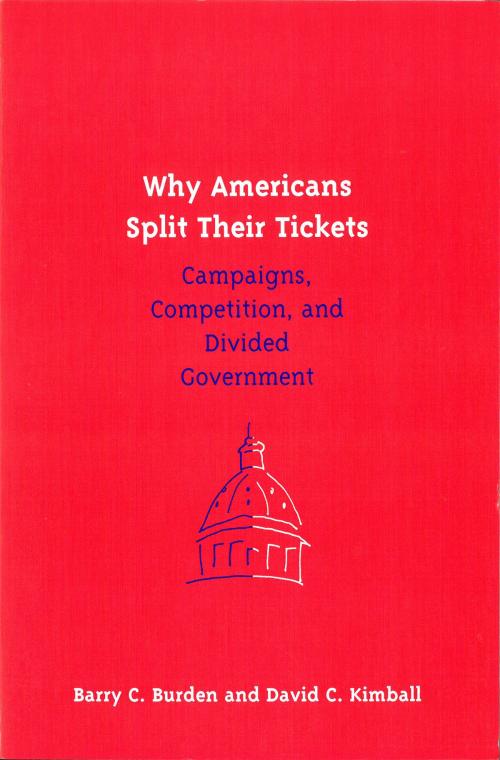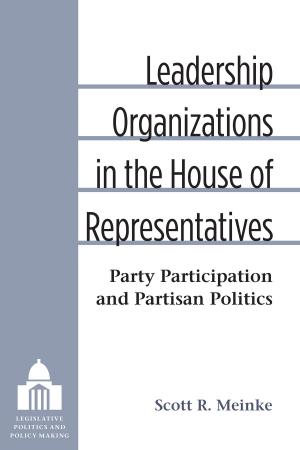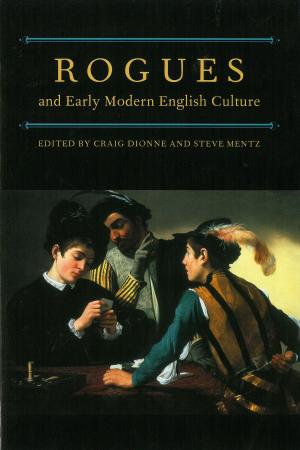Why Americans Split Their Tickets
Campaigns, Competition, and Divided Government
Nonfiction, Social & Cultural Studies, Political Science| Author: | Barry C. Burden, David C. Kimball | ISBN: | 9780472023066 |
| Publisher: | University of Michigan Press | Publication: | December 22, 2009 |
| Imprint: | University of Michigan Press | Language: | English |
| Author: | Barry C. Burden, David C. Kimball |
| ISBN: | 9780472023066 |
| Publisher: | University of Michigan Press |
| Publication: | December 22, 2009 |
| Imprint: | University of Michigan Press |
| Language: | English |
Why do some voters split their ballots, selecting a Republican for one office and a Democrat for another? Why do voters often choose one party to control the White House while the other controls the Congress? Barry Burden and David Kimball address these fundamental puzzles of American elections by explaining the causes of divided government and debunking the myth that voters prefer the division of power over one-party control. Why Americans Split Their Tickets links recent declines in ticket-splitting to sharpening policy differences between parties and demonstrates why candidates' ideological positions still matter in American elections.
"Burden and Kimball have given us the most careful and thorough analysis of split-ticket voting yet. It won't settle all of the arguments about the origins of ticket splitting and divided government, but these arguments will now be much better informed. Why Americans Split Their Tickets is essential reading for anyone interested in understanding the major trends in U.S. electoral politics of the past several decades."
-Gary Jacobson, University of California, San Diego
"When voters split their tickets or produce divided government, it is common to attribute the outcome as a strategic verdict or a demand for partisan balance. Burden and Kimball strongly challenge such claims. With a thorough and deft use of statistics, they portray ticket-splitting as a by-product of the separate circumstances that drive the outcomes of the different electoral contests. This will be the book to be reckoned with on the matter of ticket splitting."
-Robert Erikson, Columbia University
"[Burden and Kimball] offset the expansive statistical analysis by delving into the historical circumstances and results of recent campaigns and elections. ... [They] make a scholarly and informative contribution to the understanding of the voting habits of the American electorate-and the resulting composition of American government."
-Shant Mesrobian, NationalJournal.com
Why do some voters split their ballots, selecting a Republican for one office and a Democrat for another? Why do voters often choose one party to control the White House while the other controls the Congress? Barry Burden and David Kimball address these fundamental puzzles of American elections by explaining the causes of divided government and debunking the myth that voters prefer the division of power over one-party control. Why Americans Split Their Tickets links recent declines in ticket-splitting to sharpening policy differences between parties and demonstrates why candidates' ideological positions still matter in American elections.
"Burden and Kimball have given us the most careful and thorough analysis of split-ticket voting yet. It won't settle all of the arguments about the origins of ticket splitting and divided government, but these arguments will now be much better informed. Why Americans Split Their Tickets is essential reading for anyone interested in understanding the major trends in U.S. electoral politics of the past several decades."
-Gary Jacobson, University of California, San Diego
"When voters split their tickets or produce divided government, it is common to attribute the outcome as a strategic verdict or a demand for partisan balance. Burden and Kimball strongly challenge such claims. With a thorough and deft use of statistics, they portray ticket-splitting as a by-product of the separate circumstances that drive the outcomes of the different electoral contests. This will be the book to be reckoned with on the matter of ticket splitting."
-Robert Erikson, Columbia University
"[Burden and Kimball] offset the expansive statistical analysis by delving into the historical circumstances and results of recent campaigns and elections. ... [They] make a scholarly and informative contribution to the understanding of the voting habits of the American electorate-and the resulting composition of American government."
-Shant Mesrobian, NationalJournal.com















